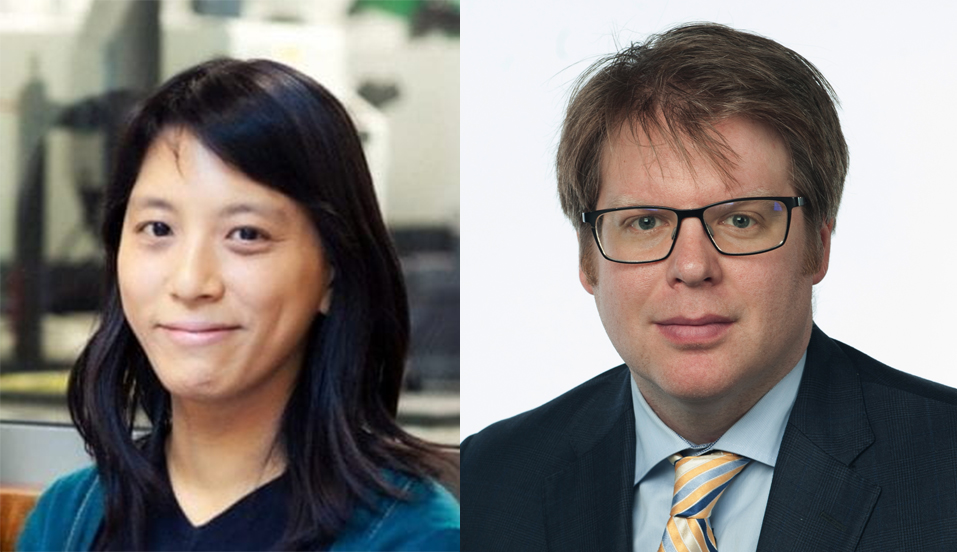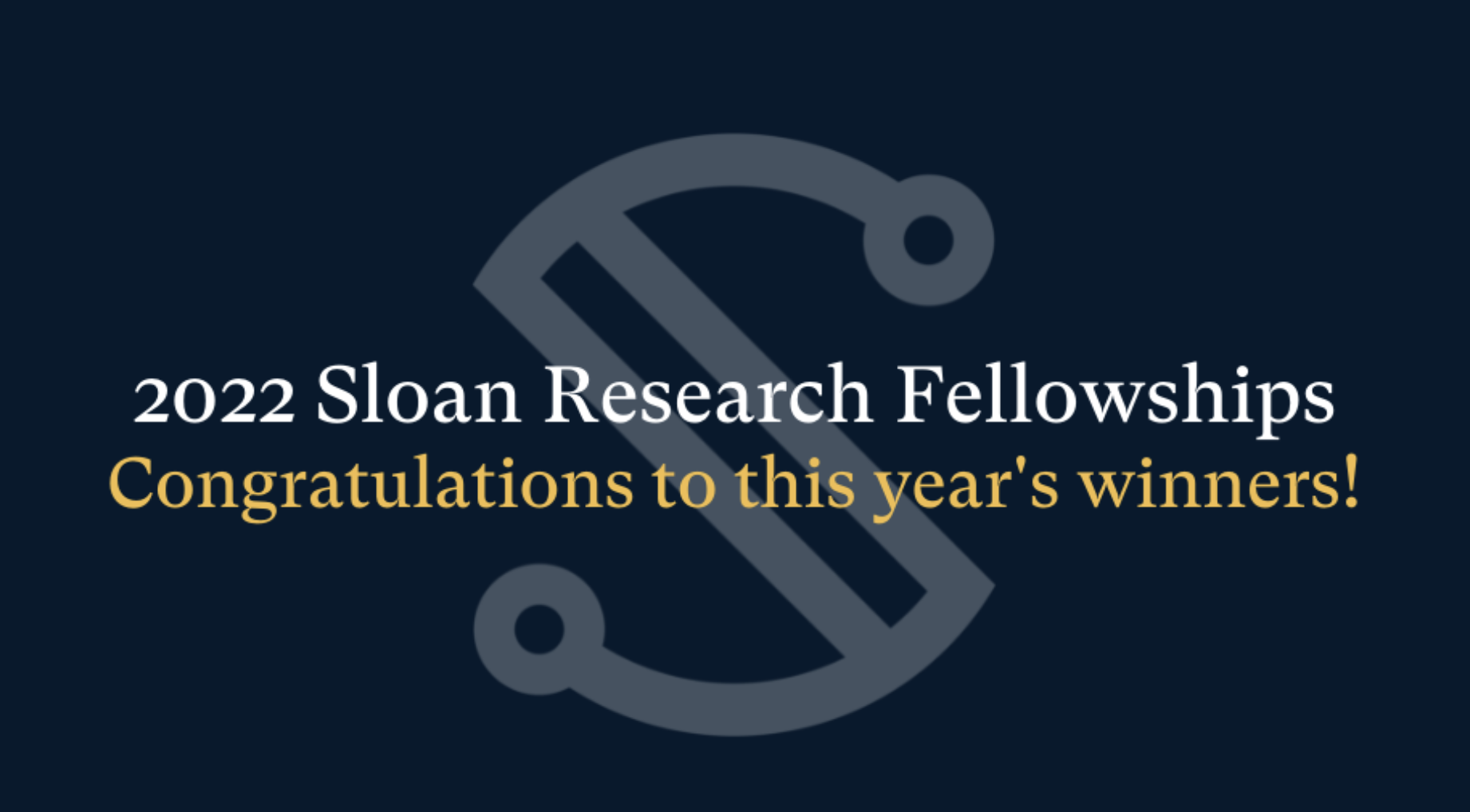Two assistant professors in the College of Sciences have just joined the ranks of Georgia Tech early career scientists selected to receive prestigious Sloan Research Fellowships.
Hannah Choi of the School of Mathematics and Henry S. “Pete” La Pierre of the School of Chemistry and Biochemistry are among 118 early career researchers across the United States and Canada named as 2022 Sloan Fellows.
"Today's Sloan Research Fellows represent the scientific leaders of tomorrow," says Adam F. Falk, president of the Alfred P. Sloan Foundation. "As formidable young scholars, they are already shaping the research agenda within their respective fields — and their trailblazing won't end here."
Sloan Research Fellowships are some of the most competitive and prestigious awards available to early career researchers. They are also often seen as a marker of the quality of an institution’s science faculty — and proof of an institution’s success in attracting the most promising junior researchers to its ranks. Since the first Fellowships were awarded in 1955, nearly 50 faculty from Georgia Institute of Technology have received the honor.
“I am extremely excited and honored to be named a Sloan Fellow,” Choi says. “I am deeply grateful to my research group members, mentors, colleagues and collaborators who made this possible, and I appreciate support from the School of Mathematics and the College of Sciences very much.”
Choi plans to use the grant to expand on current research projects on biological neural networks. “Specifically, with this grant, I hope to investigate computational roles of network complexities manifested by diverse neural dynamics and intricate connectivity among different types of neurons, in data-driven, functional neural networks across multiple scales, modalities, and systems. This study, therefore, will help us better understand how robust and efficient computation emerges from the unique complexity of biological neural networks, which then can be applied to innovate neuromorphic computing.”
The Choi Research Group in Mathematical Neuroscience’s primary goal “is to understand how efficient and adaptable neural coding emerges from complex connectivity structure and rich neural dynamics in both biological and artificial neural networks at multiple scales.”
La Pierre leads the La Pierre Research Group, with an aim to “disentangle the complex electronic structure of f-block materials,” according to the group’s website. F-block elements, also known as lanthanides and actinides, are heavy metals found at the bottom two rows of the Periodic Table.
La Pierre will use the award funds to support postdoctoral fellows and graduate students to take on several new lines of inquiry in lanthanide and actinide magnetism.
“I am quite excited to be included among this year’s Sloan Research Fellows,” La Pierre says. “It’s (a group of) extremely talented colleagues. I am also particularly humbled by my colleagues’ support for this award.”
Several current and former College of Sciences researchers — along with a number of College of Engineering faculty — are also recent recipients of Sloan Fellowships:
- 2020: Yao Yao, School of Mathematics
- 2019: Konstantin Tikhomirov, School of Mathematics
- 2018: Vinayak Agarwal, School of Chemistry and Biochemistry
- 2018: Lutz Warnke, School of Mathematics
Four College of Sciences early career researchers were also named 2020 Scialog Fellows for a new research initiative, Signatures of Life in the Universe. Scialog Fellows are jointly sponsored by the Research Corporation for Science Advancement and Alfred P. Sloan Foundation:
- Jen Glass, associate professor, School of Earth and Atmospheric Sciences
- Chris Reinhard, associate professor, School of Earth and Atmospheric Sciences
- Gongjie Li, assistant professor, School of Physics
- Amanda Stockton, assistant professor, School of Chemistry and Biochemistry
Beyond Sloan Research Fellowships, the Sloan Foundation awards approximately 200 grants per year, totaling roughly $80 million dollars in annual commitments in support of research and education in science, technology, engineering, mathematics, and economics.
That list includes a number of Georgia Tech recipients, most recently 2021 recipient Nicholas (Nick) Hud, professor, School of Chemistry and Biochemistry and the Petit Institute for Bioengineering and Biosciences; 2020 recipient Matthew McDowell, associate professor, George W. Woodruff School of Mechanical Engineering in the College of Engineering; and 2019 recipients Kaye Husbands Fealing, dean and Ivan Allen Jr. Chair, Ivan Allen College of Liberal Arts and Julia Melkers, professor, School of Public Policy, Ivan Allen College of Liberal Arts.
For More Information Contact
Writer: Renay San Miguel
Communications Officer II/Science Writer
College of Sciences
404-894-5209
Editor: Jess Hunt-Ralston
Director of Communiations
College of Sciences




